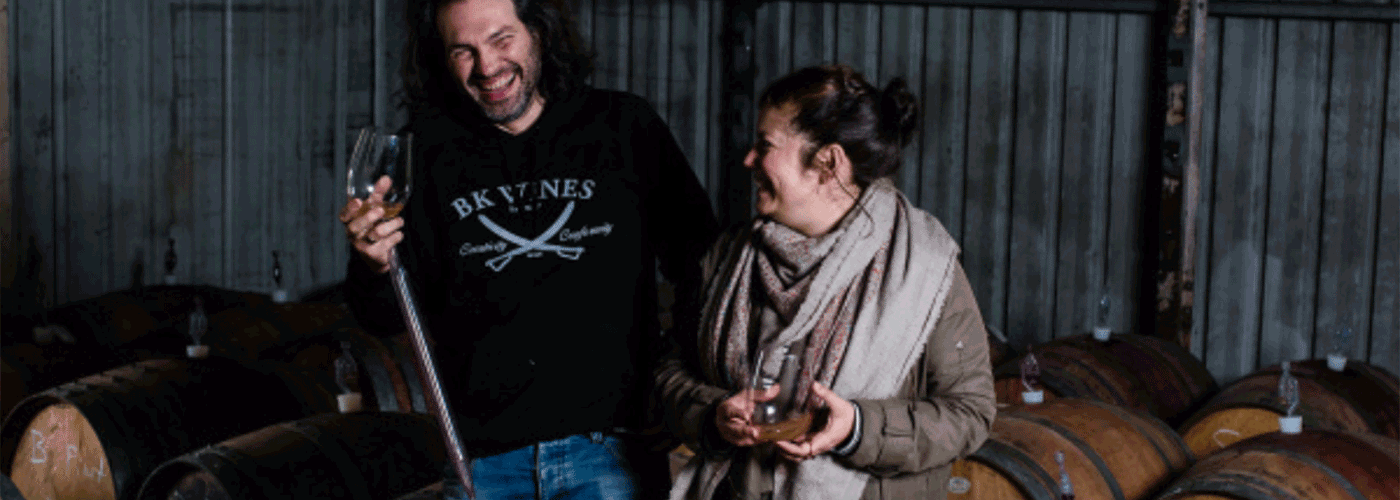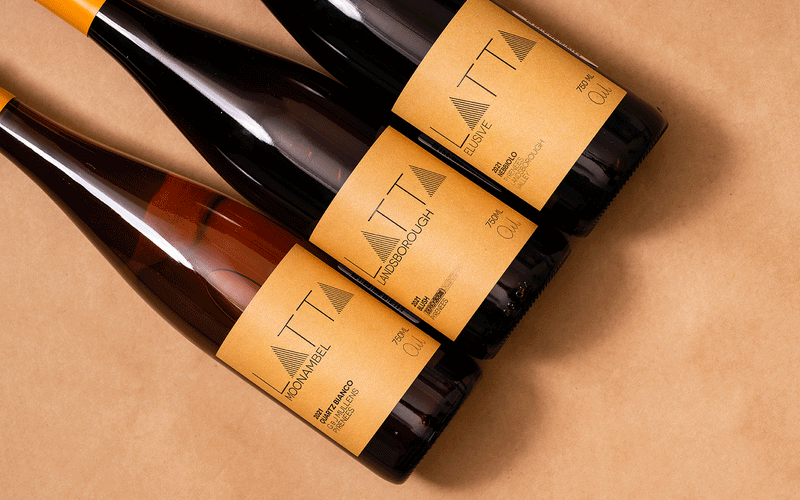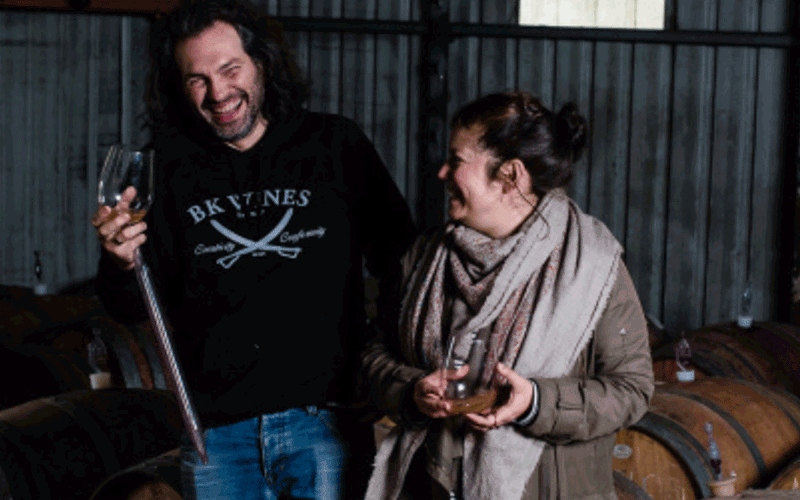Published Tue, May 28, 2024
Based in the Adelaide Hills, Alex Schulkin + Galit Shachaf are legends within Australia’s natural wine scene, championing sustainable production and making wines that bend and transcend trend and tradition. They like to say that the wines are an expression of themselves; sometimes a little rough on the edges, full of contradictions (Alex is a scientist by day!), wild and free. They are pure and humble, always additive-free and always delicious.
The Other Right is Alex and Galit. How did you get into winemaking? Was there a formative moment or was it a natural progression?
We arrived in Adelaide in June 2009, aiming to stay for a year, so Alex could do his post-graduate winemaking degree in Adelaide University. As fate would have it, we made friends with James Erskine who was in the process of establishing Jauma Wines. It was indeed a formative moment, as until then we'd only known of one way of making wine - a very prescribed, follow-the-flowchart, safe, but unexciting winemaking. We were blown away by how wine could be different from what was on offer pretty much everywhere back then. Then there was the natural progression of slowly gaining our winemaking feet, developing our own unique style and gaining confidence at it.
Alex, you’re a scientist – what’s your focus?
At the Australian Wine Research Institute, my main research focus is wine texture - an array of tactile sensations that include astringency, viscosity, and warmth, among others. I am looking at wine composition and how it drives those sensations.
Your winemaking philosophy eschews many of the winemaking technological advances made in the last 5 decades. Does that conflict with Alex being a scientist?
It does not! There may be knowledge that is not applicable, but no knowledge is harmful to whichever way the wine is made. In fact, a deeper understanding of the chemical and biological processes allows us to make more educated decisions on what can and can't be done and how to play the high-risk game, while minimising our exposure to the aforementioned risks.
Favourite grape variety?!
Chardonnay, of course! It can be made into so many different things, and we make every effort for it to be that juicy, yet mineral and nutty drop, elegant yet effortless and exciting (think Audrey Hepburn in a bottle?)!
What do you love most about being a winemaker?
In a word - challenge! We follow a self-imposed set of rules that, while being quite demanding, results in wines that are full of sparkle and finesse.
We love the fact that it is impossible to make the same wine twice, so there is neither room for replication, nor complacency nor boredom. Instead, it is a constant adaptation, creative process, and pursuit of our best wine yet. We also love the connection to earth and farming which is grounding and inspiring in a different way.
If The Other Right was an album, what would it be?
Talkie-Walkie by Air, of course! That album is full of magic that transcends known forms and shapes, with multiple time signatures running in parallel at times. It is full of surprises, and they are all immensely pleasant. That is what we want our wine to be!
If it was a film?!
Midnight in Paris. Sometimes magic happens, and you eventually realise that that is your reality, even though it is obscure to many. We tend to think that we'd rather be someone else, elsewhere, in a different time, but it is here and now, really. If all that makes no sense to you, you need to (re)watch the movie.
Can you sum up your winemaking philosophy in three words?
Actually, in two: Bright wines. But there's a lot of detail to it, which would take a lot more than three words.
What are some of the biggest lessons learnt along your journey as winemakers?
Keep calm and carry on. Personal experience is the most applicable one. You can't fit 500 litres of wine into a 300-litre barrel. Not necessarily in that order.
Your wines are made naturally with organic fruit, and no additions or preservatives. Why is it important to you to make wine in this way?
There are many parts to it, and each one has its own reason. Natural fermentation (carried out by indigenous yeast) provides for a huge range of flavours that wouldn't exist, had we inoculated the grapes with a single strain yeast. Not being able to adjust the wine leads to a more thoughtful and proactive process, as once things have happened, they cannot be reversed. Not using fining, additives, enhancers (like new oak) or filtration means we are working with a pure expression of the vineyard, the variety, the season, and our vision. And it makes what we find to be more vibrant and expressive wines that are never boring.
Can you throw us a wine-food pairing with one of the cuvées from your latest release?!
Alex has recently developed a mild obsession with Pad See Ew. That dish would be a perfect match to our Fawn Chardonnay - stir-fried greens harmonise with the gentle weight of the wine, while the rich savoury side of the dish marries well with the wine's minerality. But, in the end, they just go well together!


